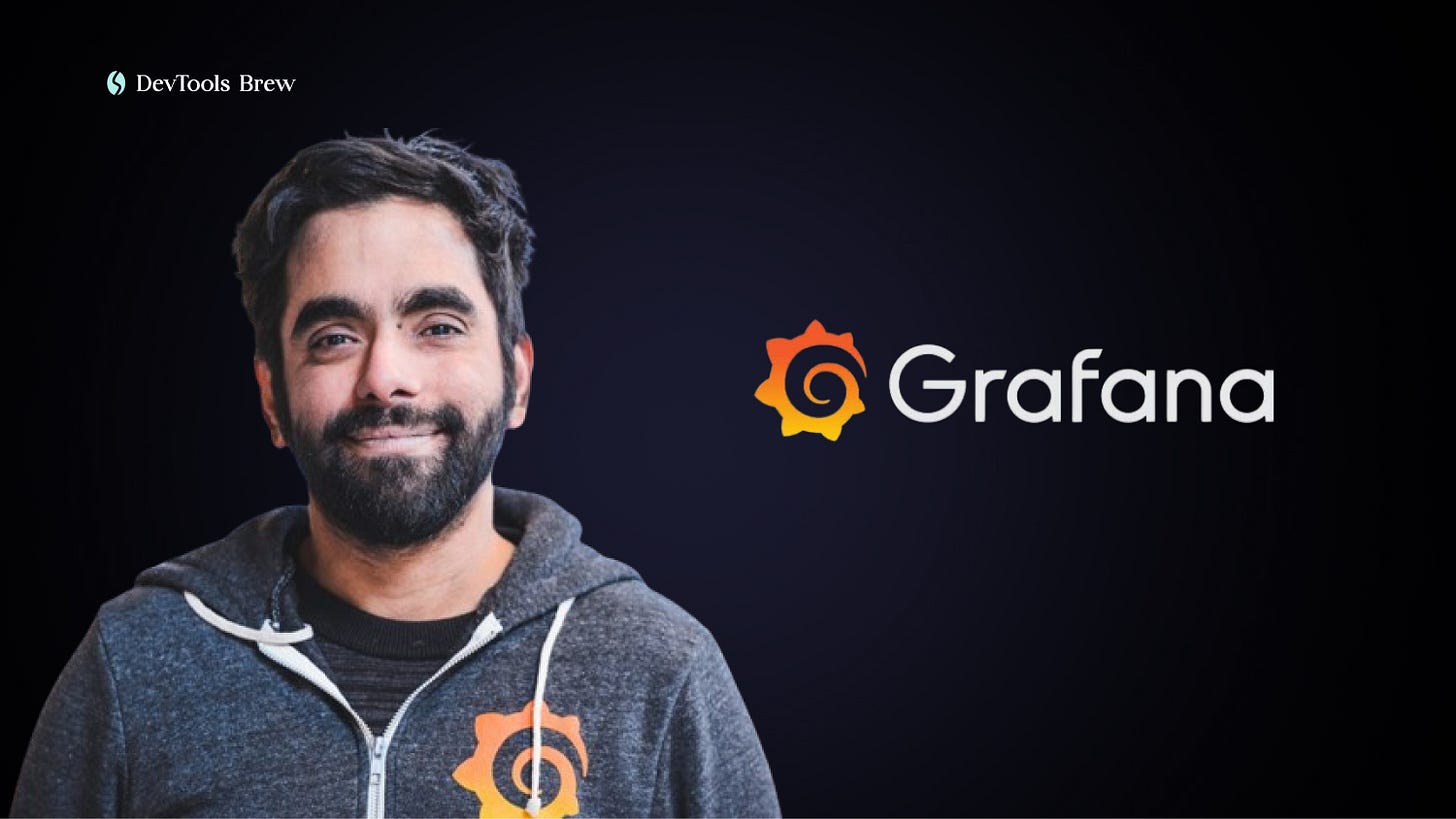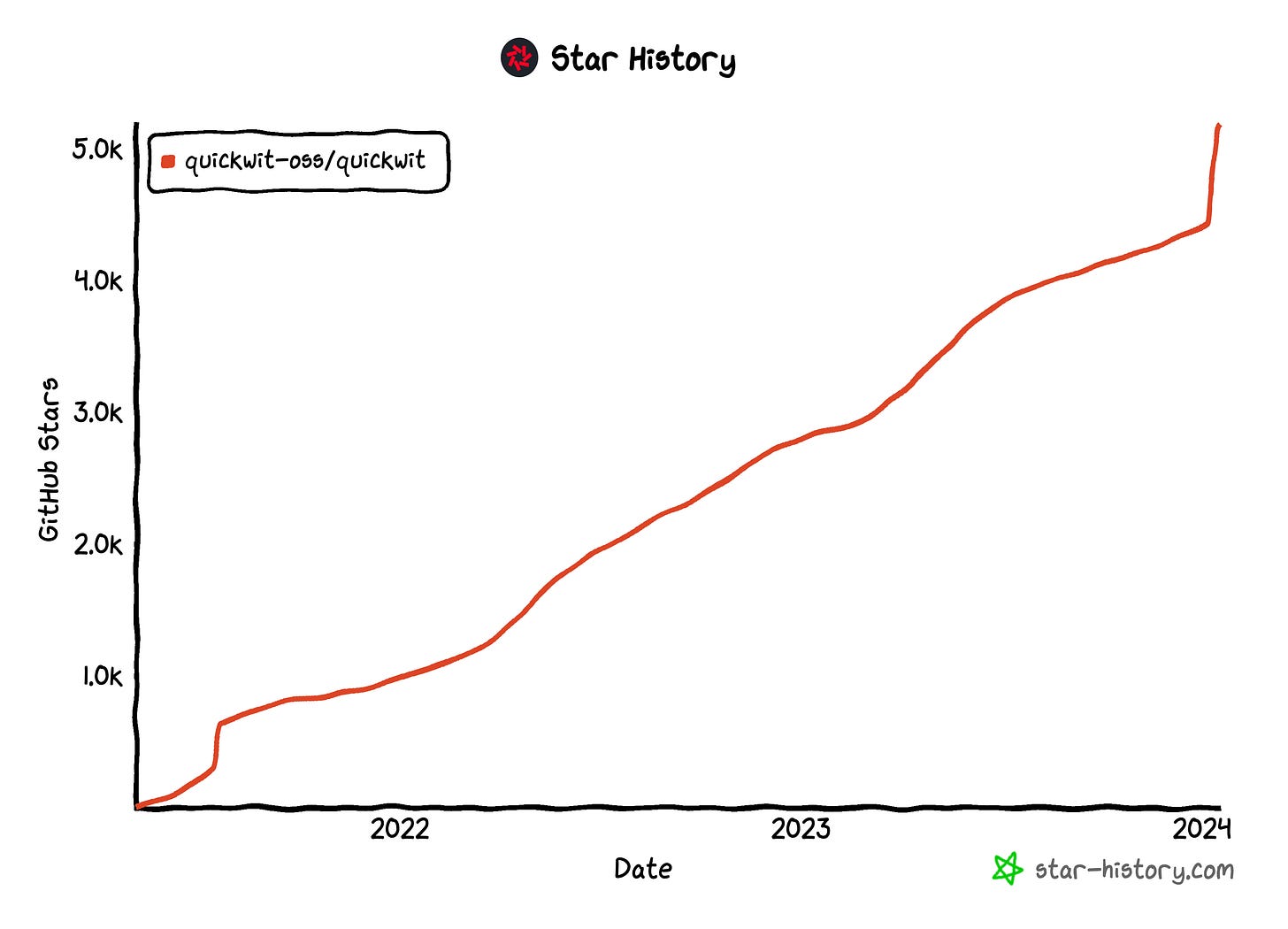DevTools Brew #45: Grafana's Journey: from 1999 to Open Source Dominance - Lessons from Grafana Labs' CEO
Hey folks, welcome to DevTools Brew #45!
If you're new here, my name is Morgan Perry, co-founder of Qovery, and every Saturday, I share the stories, strategies, and insights behind the most successful devtool companies.
In this Issue #45:
📈 Grafana's Journey: from 1999 to Open Source Dominance - Lessons from Grafana Labs' CEO
⭐ Star History Weekly Pick
I hope you will enjoy this new edition.
Let's dive in!
📈 Grafana's Journey: from 1999 to Open Source Dominance - Lessons from Grafana Labs' CEO
In this week's edition, I’m unraveling the fascinating journey of Grafana Labs. From its origins in 1999 to shape the world's most popular open-source observability dashboard tool, the insights from Raj Dutt, founder & CEO of Grafana Labs, are a treasure trove.
Let's dive into the pivotal moments that shaped Grafana's evolution and Raj's lessons in building a sustainable and dominant open-source business👇
Key Takeaways
1. Voxel's Origin and Growth
Project to Company Evolution: Voxel, initiated as a Linux-focused project in 1999 during Raj's college years, evolved into a cloud infrastructure company that operated for 13 years.
Organic Growth: Voxel grew organically with a team of passionate individuals, facing challenges such as a lack of business experience, limited funding options, and the constraints of a capital-intensive hosting business.
2. Lessons from Voxel to Grafana Labs
Learning from Mistakes: Raj views Grafana Labs as a do-over, applying lessons learned from Voxel's slow growth and emphasizing the need for sufficient capitalization to fuel growth.
Remote-First and International Focus: Grafana Labs, with over 150 employees across 20 countries, adopts a remote-first approach, aligning with Raj's passion for international business and tapping into global talent pools.
3. Long-Term Greedy Philosophy
Balancing Monetization and Community: Raj advocates for a "long-term greedy" approach, focusing on building a sustainable business without optimizing for a specific exit strategy.
Open Source Commitment: Grafana Labs aligns with the open source movement, prioritizing open-source solutions like Grafana, Loki, and Prometheus. The challenge lies in balancing community-driven initiatives with commercial strategies.
4. Building Trust and Trusted Advisor Role
Big Tent Philosophy: Grafana Labs adopts a "big tent" philosophy, prioritizing interoperability over vendor lock-in, and fostering trust with customers by integrating seamlessly with existing solutions like Elasticsearch.
Trusted Advisor Approach: The company positions itself as a trusted advisor, steering away from traditional competition-focused sales tactics. The emphasis is on helping customers enhance their existing infrastructure rather than advocating complete overhauls.
5. Interoperability and Community Engagement
Interoperability as a Priority: Grafana prioritizes interoperability, seamlessly connecting to over 50 open-source and commercial projects. Noteworthy is the commitment to integration without necessitating data migration. All of this ensures compatibility with various tools and vendors, enabling users to integrate Grafana with their existing tech stack.
Community-Centric Strategy: The company actively engages with and nurtures its community, acknowledging the diverse and complicated infrastructure of large customers. The goal is to provide solutions that work harmoniously with the existing toolsets.
Trusted Advisor Philosophy: Instead of advocating a "rip and replace" mentality, Grafana positions itself as a trusted advisor. The emphasis is on discussing variances among vendors rather than promoting kill sheets. Grafana aims to contribute to the existing IT infrastructure by introducing stop signs and enhancing plumbing, with no intention to dismantle current structures.
6. Sales Strategy and Non-Disparagement Approach
Non-Disparagement Policy: Grafana Labs distinguishes itself by avoiding disparagement of competitors, focusing on highlighting the strengths of its solutions while maintaining compatibility with other vendors.
Sales Team Playbook: The traditional sales playbook is eschewed in favor of a collaborative approach, encouraging sales teams to promote interoperability and coexistence with other tools, fostering a more cooperative and mutually beneficial ecosystem.
7. Balancing Open Source and Commercial Interests
Tension Management: Raj Dutt acknowledges the inherent tension between open source principles and the imperative to build a viable business. He stresses the difficulty of striking the right balance and the ongoing internal deliberations.
Feature Decision Strategy: Grafana's challenge lies in determining which features to keep open source and which to commercialize. The company adopts a two-tiered approach: prioritizing community and adoption as the primary goal, with monetization being secondary.
8. Importance of Open Source Foundation
Foundation for Success: Open source serves as the cornerstone of Grafana's achievements. A robust open-source base not only fosters community contributions but also attracts inbound sales. Users' existing trust in the open-source version facilitates interest in additional Grafana offerings.
Virtuous Cycle: Grafana aims to maintain a virtuous cycle where success in commercial ventures feeds back into open source. The company's ability to invest more in open source as the commercial side prospers is crucial for sustained growth.
9. The Significance of Community
Community as a Superpower: Community support is deemed Grafana's superpower, contributing valuable feedback and keeping the company accountable. A symbiotic relationship is emphasized, where the community's involvement aids software development, and the company, in turn, prioritizes community needs.
Strategic Inbound Sales: Having a strong open-source foundation enhances Grafana's inbound sales strategy. Users approaching Grafana Labs already trust the open-source solution, creating a significant structural advantage.
10. The Role of Open Source Freedom
Distinguishing Open Source from Freemium: Open source is positioned as distinct from freemium models. While both share similarities in distribution models, the critical difference lies in the freedom open source provides to users. Freedom extends beyond cost and encompasses the ability to modify and redistribute the source code.
Power of Open Source: Open source's strength lies in preventing vendor lock-in. Users are empowered to customize and modify the software, ensuring they are not beholden to a single vendor.
11. Cultural Aspects and Leadership in Balancing Priorities
Cultural Imperative: Building the right company culture is identified as crucial for maintaining equilibrium. As Grafana Labs experiences rapid growth, cultivating a culture that respects diverse perspectives becomes an ongoing priority.
Leadership's Holistic Understanding: Leadership within Grafana Labs, both on the engineering and sales fronts, demonstrates a holistic understanding of the company's dynamics. Respect for each facet of the organization and shared commitment to a mission are pivotal for success.
Active Education: Actively educating the team on the company's culture is an essential ongoing process. Frequent internal discussions and sessions involving key leadership contribute to the dissemination and reinforcement of these cultural values.
12. Challenges in Scaling the Company
Organizational Growth: Grafana Labs has experienced rapid growth, with projections indicating an increase to 400 employees by the end of the next year. This surge contrasts with the earlier growth trajectory at Voxel, highlighting the evolving dynamics within Grafana Labs.
Sales Team Evolution: While revenue generation has been ongoing for four years, the sales team was formally established only a year and a half ago. This shift signifies a strategic pivot towards a more concentrated sales effort, aligning with the company's expansion goals.
Grafana Labs journey is marked by a strategic and cultural emphasis on community, interoperability, and a delicate balance between open-source principles and business viability.
⭐ Star History Weekly Pick
The Star History Weekly Pick is:
Quickwit: “Cloud-native search engine for observability. An open-source alternative to Datadog, Elasticsearch, Loki, and Tempo”.
⭐️ 5.2k stars reached
It’s already over! If you have any comments or feedback, you can reach out to me on LinkedIn or Twitter.
Thanks for reading,
Morgan
There are no ads in my newsletter. All I ask is you subscribe, share, and enjoy! :)



